Meet the 2018 Board of Governors Candidates
Updated: Voting is now open. Deadline to vote is 24 September at 12 PM (Noon) ET.
IEEE Computer Society members can begin voting for President, 1st Vice President, 2nd Vice President, and the Board of Governors on Monday, 6 August. Over the next two weeks we will provide each candidate’s position statement and biography. First up are the candidates running for the Board of Governors.
Eleven candidates are running for six open seats; members may vote for up to six candidates. The candidates elected to the Board of Governors in 2018 will serve a three-year term, from 1 January 2019 to 31 December 2021.
In June 2018, the IEEE Computer Society Board of Governors approved amendments to Bylaws Article II Nominations and Elections. The amendments reduced the number of annually elected Board member positions from seven to six going forward, with the total number of elected Board members changing from 21 to 18 by the start of the 2021 calendar year. The seven Board of Governors elected by members to terms ending in 2019 or 2020 will serve through the end of their terms.
The candidates are listed in alphabetical order. Some candidates have provided links with additional information or created webpages about their candidacy.
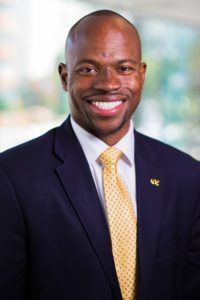
M. Brian Blake
Position Statement
Through its publications, conferences, and services, the IEEE-CS impacts how researchers and professional engineers enhance society. With social media and peer-to-peer networks, the nature of communication is evolving at an unprecedented pace. IEEE-CS must continually enhance its processes and systems so that the knowledge is effectively transferred for the greatest societal impact.
My role as the Executive Vice President and Nina Henderson Provost at Drexel University provides access to over 1,700 partnerships that the institution has with companies, government agencies, and other comprehensive research institutions through our cooperative education network. As a 12-year higher education administrator, my experience includes governance and inter-organizational agreements, which should facilitate my ability to encourage consensus with other governors. My research is in the area of web services for data analytics and social media, which will be important for IEEE-CS as the nature of communication and data dissemination evolves significantly.
As a Board of Governors member, I plan to leverage my diverse experience working in industry, academia, and government agencies and experience with leadership roles for IEEE-CS conferences, publications, and technical committees. Like my work as EIC, I want to help develop approaches that make the Computer Society’s body-of-knowledge most accessible to society.
Biography
M. Brian Blake is Distinguished University Professor of Systems and Software Engineering and Executive Vice President and Nina Henderson Provost at Drexel University. Blake has appointments in the Department of Computer Science and the Department of Electrical and Computer Engineering. He is most known for his research and professional contributions to the areas of adaptive, inter-organizational workflow for web services and systems. Blake and his students have co-authored over 200 research papers and received more than $12 million in sponsored research awards.
For IEEE activities, Blake has served as General/Program/ Workshop Chair for more than 50 IEEE conferences. He is currently serving as Editor-in-Chief for IEEE Internet Computing where he introduced the “Test of Time” paper award and the Editor Select paper series. He was Associate Editor of IEEE Transactions on Services Computing and served as vice-chair for the IEEE-CS Technical Committee on Business Informatics and Systems (TCBIS). He served as an IEEE-CS Distinguished Visitor and also Chair of the Coalition for Diversifying Computing which is a joint IEEE/ CRA/ACM committee. Blake also co-founded the IEEE Web Services Challenge (IEEE CEC 2004-2011) and the Virtual Instructors Pilot Research Group of the IEEE-CS Technical Committee on Learning Technology.
Blake has served on five National Academies’ studies and on the NSF Advisory Committee for the Computer and Information Science and Engineering (CISE) Directorate. Prior to academia, Blake spent six years as a software architect with Lockheed Martin, General Dynamics, and The MITRE Corporation. Blake has a Bachelor of Electrical Engineering from Georgia Tech and a PhD in Information and Software Engineering from George Mason University. He is a Senior Member of IEEE and an ACM Distinguished Scientist. More information is available at http://drexel.edu/provost/about/provost/.
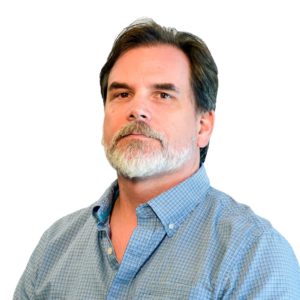 Gregory T. Byrd
Gregory T. Byrd
Position Statement
As a longtime member of IEEE and the Computer Society, I am proud to be associated with an organization that does so much to promote research, education, and standards in our profession. As a Board member, I will encourage investment in new ideas, within our financial constraints and consistent with our mission. I specifically believe that we must focus on actions that encourage membership, especially among young professionals, and which foster collaborations among all content types: conferences, publications, standards, and educational products. We must be good stewards of the reputation and resources of the Society, acting on behalf of the global community that we represent.
Biography
Gregory T. Byrd is Professor and Associate Head in the Department of Electrical and Computer Engineering at North Carolina State University in Raleigh, NC. His research is in parallel computer architecture, and he has also worked in the areas of network processors, network security, and wireless sensor networks. Byrd has served as Director of the Center for Efficient, Scalable, and Reliable Computing (CESR) at NC State, and he received the Outstanding Teaching Award from both the ECE Department and the College of Engineering. Prior to joining NC State, he worked at Celotek, MCNC, NC Supercomputing Center, and Digital Equipment Corp. He received MS and PhD degrees in Electrical Engineering from Stanford University, and a BS in Computer Engineering from Clemson University.
Byrd is a Senior Member of IEEE. He has served on the IEEE Computer Society Board of Governors since 2015, including terms as Secretary (2016), 2nd Vice President (2017), and 1st Vice President (2018). He was a member of the Publications Board (2012-16), and has served as the VP for Publications for the past two years (2017-18). As VP, he has represented the Computer Society on the IEEE TAB Periodicals Committee and the IEEE Publications Services and Products Board (PSPB). He currently serves as a CS representative on the board of the Computing Research Association (CRA). He has been the general co-chair (2012-13) and program co-chair (2011) of the IEEE International Conference on Computer Design (ICCD), and he has been a member of the technical program committee for several IEEE conferences.
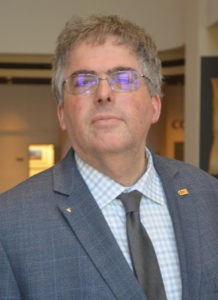 Fred Douglis
Fred Douglis
Position Statement
The Computer Society faces challenges as its role evolves. It has many transactions and magazines, but there’s been a seismic shift from individual subscriptions to institutional digital subscriptions. It runs many conferences, but these compete not only with other professional societies but with each other. As a member of the Board of Governors, I have been working with representatives from academia and industry on the CS “Research Advisory Board” to reimagine how future academic publishing can be achieved sustainably. A few conferences have moved to a floating schedule that decouples submission from presentation: a paper can be revised and resubmitted to the same conference. The distinction between “archival” publications with major revisions and “conferences” with one submission deadline is ending; what else can the CS do to improve on the conference experience, not only for authors, but for organizers and participants?
As one example, I’ve been pushing to adopt the policy USENIX uses, wherein a conference attendee who pays the non-member rate can apply the increased cost toward Society membership. As another, I think the economies of scale of centralized registration and publicity should make it possible to have the Society, rather than reluctant volunteers, manage conference bureaucracies at minimal marginal cost.
Biography
Fred Douglis is a current member of the CS Board of Governors and a Fellow of IEEE. He has been a Chief Research Scientist at Perspecta Labs since January 2018, where he works on applied research in the areas of blockchain, network optimization, and security.
He was previously with companies including Matsushita, AT&T, IBM, and (Dell) EMC. His research interests included storage, distributed systems, web tools and performance, and mobile computing. He was also a visiting professor at VU Amsterdam and Princeton University. He has published one book, about 60 workshop or conference papers, 12 journal or magazine articles, and over 80 patents. He holds a PhD in computer science from UC Berkeley.
Douglis has volunteered with the IEEE-CS since 1993, and he was named a member of the Golden Core in 2012. He served as Editor-in-Chief of IEEE Internet Computing from 2007-2010 and has been on its editorial board since 1999. He is also on the editorial boards of IEEE Transactions on Computers and IEEE Transactions on Cloud Computing. He formed the TC on the Internet, chairing it from 1997 to 2000, and he previously chaired the TC on Operating Systems from 1996 to 1998. He chaired several steering committees; helped organize the first IEEE/IPSJ Symposium on Applications and the Internet (SAINT) in 2001, serving as program co-chair; and he was general chair of the 1993 IEEE Workshop on Workstation Operation Systems.
Outside IEEE-CS, he has been program chair of four major conferences. He serves on the editorial board of ACM’s Transactions on Storage. He serves on the steering committee of the USENIX Workshop on Hot Topics in Cloud Computing. He received an IBM Outstanding Technical Achievement Award for System S (2008) and a best paper award for the World Wide Web Conference (2004).
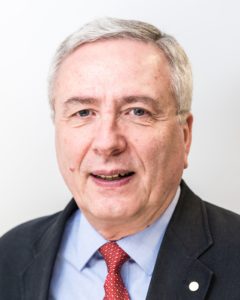 Vladimir Getov
Vladimir Getov
Position Statement
The IEEE Computer Society (CS) continues to enhance its global membership diversity as we play a central role in the unprecedented digital revolution and lead exciting new IEEE initiatives, such as Rebooting Computing, Cybersecurity, Cloud Computing, Big Data, and Internet of Things. These rapid developments involve several important challenges, amongst which more efficient professional communications via social networks and systematic support and training for young professionals. Nowadays, the introduction of such new initiatives and approaches can only be successful as part of a truly global collaboration reaching around the world—from California, Brazil, and India, to Japan, China, and Europe.
Over the years, I have developed an extensive and unique track record of international achievement and recognition, involving an increasing number of strong professional contacts in various parts of the world. I have been actively involved in the portfolio review of our periodicals and conferences and am committed to contributing further towards their close collaboration and integration as some of the differences between journal and conference papers will disappear with the transition to e-publications. I will be honored to represent the professional community as CS BoG member and will work with enthusiasm and dedication to address these important challenges.
Biography
An active IEEE Computer Society (CS) volunteer since the mid-1990s, Vladimir Getov is professor of distributed and high-performance computing and research group leader at the University of Westminster, London. He is a member of the IEEE CS Board of Governors (2016–2018), and secretary of the CS Publications Board. Getov has been Computer’s area editor for high-performance computing since 2008 and has served as general and program chair of several IEEE conferences. He is also Standing Committee member and co-chair of publications for IEEE COMPSAC, as well as Executive Committee member of the IEEE CS Technical Consortium on High-Performance Computing, while also contributing as an active member of the IEEE International Roadmap for Devices and Systems and several other boards and committees.
Getov’s career spans both industrial research and academia. After earning his PhD in Computer Science from the Bulgarian Academy of Sciences, Getov was project manager of an IBM PC/XT-compatible computer (1984). In 1989, he moved to England to join the Concurrent Computations Group at the University of Southampton. Since 1995, Vladimir has been an academic staff member at the University of Westminster, where he was awarded the titles Reader (1999) and Professor (2001). He has an extensive track record of international collaboration and achievements, such as founding contributions to the PARKBENCH Committee, the Java Grande Forum, and the Open Grid Forum.
Getov is recognized by his peers for his commitment to service, leadership skills, and dedication to research and related professional activities. He has received several prestigious awards, such as IEEE CS Golden Core Award (2016), Honorary Professor (TU-Sofia, Bulgaria, 2012), IBM Faculty Award (2010), Bulgarian “Pythagoras” Science Award (2009), Outstanding Executive Committee Contribution Award (EU CoreGRID, 2008). He is a Senior Member of IEEE and ACM, a BCS Fellow, and was Governor of ICCC (2004–2007).
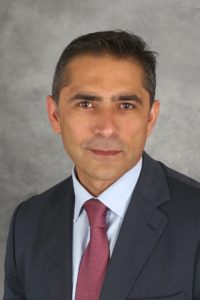 Carlos E. Jimenez-Gomez
Carlos E. Jimenez-Gomez
Position Statement
Computing has become the core of the 21st century society. Nowadays paradigms are changing: primary education students become developers, technology and openness allow citizens to collaborate building apps addressed to improve services … and there are unmet sectors in which technology is now key that need to be part of the CS’s focus. If elected, I will support the BoG, led by the CS President, by developing and implementing strategies to meet the 21st century CS members’ needs, and by growing the CS’s leadership worldwide in sectors that are increasingly key for the CS.
Given my experience, I will focus on practitioners’ needs and contributions. I believe that, on a daily basis, they are the first to experience the complexities of a fast-changing, technology-driven world and its impact on their professional activities, conditions, and needs. Practitioners face the need for new jobs and new skills that can threaten their status quo, and the CS should therefore develop new communities and personalized services to meet these needs. I would like to support the Professional & Educational Activities Board to, for example, develop new career paths for members who experience the need to evolve to master new technologies.
Biography
Carlos E. Jimenez-Gomez (@estratic) has been an active IEEE Computer Society member for 15 years. Nowadays, he is serving as IEEE CS Member and Geographic Activities Board Vice-Chair for Special Technical Communities (STC), as well as IEEE CS STC Executive Committee chair. He was founding member of initiatives such as IEEE CS STC on Electronic Government, where he served as Chair, being a current committee member. He was founding member and active volunteer of IEEE UNED Student Branch and, later, over the past decade, he was founding member and Chair of IEEE Technology Management Council Spain chapter, as well as committee member of IEEE Spain section and IEEE Computer Society Spain chapter.
Jimenez-Gomez is internationally recognized for his expertise in information and technology in government. He is Distinguished Lecturer of IEEE Society on Social Implications of Technology (R1), and he has also been Distinguished Visitor of IEEE CS (R8 and R9), having a great experience as representative in Spanish-speaking countries and regions such as Latin America. He authored conference papers and whitepapers, edited a book, and published several book chapters and articles; and he has also been keynote and invited speaker in international conferences and meetings.
As practitioner, he has more than 25 years working in the public sector. He was Vice-Dean of the Official Professional Association of Technical Computer Engineers of Catalonia (COETIC) in Barcelona, Spain. In the field of information and technology in government he has worked for governments and international organizations in different countries and continents, especially in Latin America. He is co-author of the Ibero-American Interoperability Framework, officially signed by 21 countries in 2010. His research on digital and open justice has been pioneering. His consulting and research interests include digital government, interoperability, smart cities, open justice or data science.
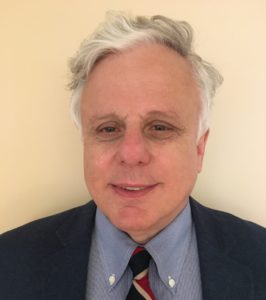 Fabrizio Lombardi
Fabrizio Lombardi
Position Statement
Dissemination of scientific knowledge and interaction among researchers and practitioners are essential ingredients for technology advancement in both academia and industry; CS is at the forefront in these endeavors. More than ever its success is indeed the success of all of its constituencies; so, the CS must continue to be inclusively collaborating with other professional organizations to proactively anticipate the diverse needs of its members. My first and only priority is and will remain to provide the best service to our members for enhancing their professional growth. My past accomplishments in publications and conferences are proof of my capabilities; through effective communication, proven leadership, and timely planning I will contribute to the Board of Governors to enable, facilitate and expand compelling new initiatives to all members; I will help to enhance existing organizational structures, improve service and products across technical areas and geographic locations. Engaging volunteers, moving into new technical frontiers, enlarging student activities, these are few of the endeavors that I will be honored to pursue by fostering a collegiate discussion and efficient resolution. My background in technology, education and management will add a further prospective in helping to shape our Society. Respectfully, I ask for your vote.
Biography
Fabrizio Lombardi holds the International Test Conference Endowed Chair at the Department of Electrical and Computer Engineering, Northeastern University, Boston. He has a doctorate in Electronic Engineering from University College London; Lombardi is an IEEE Fellow, a Golden Core Member, a HKN member and twice a Computer Society (CS) Distinguished Visitor. He was a two-term Editor-in-Chief of the IEEE Transactions on Computers and the inaugural Editorin- Chief of the IEEE Transactions on Emerging Topics in Computing; currently, he is the Editor-in-Chief of the IEEE Transactions on Nanotechnology. For all three periodicals, his leadership has resulted in substantial improvements in qualitative/quantitative metrics such as impact factor, selectivity and number of submissions. Moreover he has been a Guest Editor of 18 Special Issues in IEEE Transactions and Magazines.
He has been appointed on Executive Boards of many non-profit organizations (such as code.org, the non-partisan advocacy coalition for K-12 Computer Science education, as well as the CS (as an elected two-term member of its Board of Governors (2012-2017)) and IEEE (as an appointed member of the Future Directions Committee (2014-2017)). Among the many volunteer positions in the CS, he was the Chair of the 2016 and 2017 Fellow Evaluation Committees.
He has contributed to numerous IEEE International Conferences/Symposia/ Workshops in leadership positions (30 times) as well as technical program committee member (nearly 250 times). He has extensively published in computer engineering and nanotechnology (more than 750 papers of which nearly 150 IEEE Transactions); his research has been funded by state/federal agencies and industry, at the national and international levels, while also receiving two IEEE Meritorious Service Awards and five Certificates of Appreciation. Lombardi is the recipient of awards from industry, the IEEE/ Engineering Foundation and the Canadian and Japanese Governments; he also serves as a consultant on matters related to education, technology and corporate strategies.
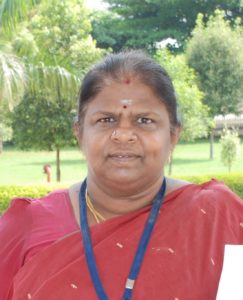 Ramalatha Marimuthu
Ramalatha Marimuthu
Position Statement
The Computer Society has excelled in being a change agent for the students, young professionals as well as senior professionals in terms of career advancement from the date it was founded more than half a century ago. Personally I have seen many of my students blossoming into responsible career professionals and developing their network with this platform. The fast evolution in technologies have ensured that the expectations of the member community also change towards IEEE Computer Society. As a member of the Board of Governors, I will be a passionate advocate for encouraging networking opportunities for the members, leading to collaboration and cooperation. With my experience in the various boards as a contributor for the past decade, I believe an opportunity to serve the members of the Computer Society will enrich my learning and enable me to work towards realizing the goals of the Society better. Having introduced many novel programs in various committees I served, I hope to focus on increasing member engagement and member satisfaction through innovative programs and opportunities for networking. I also bring a vast network of contacts from industry and academia through my years of service.
Biography
Ramalatha Marimuthu, currently working in Kumaraguru College of Technology, Coimbatore, India, has vast experience in motivating and training students on skill development and peer networking. Her specialization in developing solutions for societal issues has been recognized by various universities and research organizations all over the world where she has delivered invited talks on her Assistive Technology–based projects. She has grants, funded projects, and publications, which have enhanced her teaching and delivery over the three decades of her teaching career and has won her Best Teacher Award many times. She has served in many leadership roles as Chair of Departments, Controller of Examinations, Chairperson of Evaluation Boards, and Curriculum Development Boards. She has taken over many leadership roles in IEEE including chairing the IEEE Women in Engineering Committee in 2011 and 2012. Currently she is on the Board of Governors in IEEE Society on Social Implications of Technology and has founded the Women in Engineering subcommittee under the Society. She launched an exclusive project, “Sangamam,” for the transfer of technology to rural areas, which focused on improving quality of life for the rural masses. This project won her the Anita Borg Institute Change Agent Award 2012. Based on her work to improve the quality of life for the rural society as well as the people with special needs, she was awarded the 2008 IEEE MGA Achievement Award, and the 2009 Life Time Achiever Award by the Lions Club International, the 2009 Mentor Award by the Secretariate for the Disabled, the Government of Tamilnadu, and the 2012 IEEE MGA Leadership Award. She was awarded the 2014 ABI Systers Pass it on Award for her Returning Mothers project. Recently she won the 2016 WIE Inspiring Member of the Year Award from the IEEE Women in Engineering Committee.
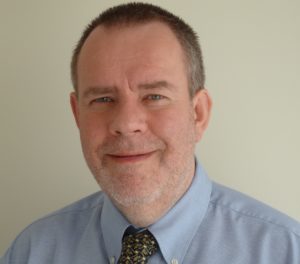 Erik Jan Marinissen
Erik Jan Marinissen
Position Statement
Computer hardware and software is ever more pervasive in our daily work and private environments; even though today’s form factor often differs from the traditional computer. And, we are just at the start: “you ain’t seen nothing yet!” Therefore, the role of the IEEE Computer Society (CS), as the world’s leading association of professionals in computing science and technology, should become only more important, catering to information, networking, and career-development needs of the growing legion of women and men in this field. To maintain its relevance, CS needs to embrace even more the technologies that we as professionals help create: as new topics of conferences and publications, but also to reach out to, connect, and empower our (potential) members.
Even if only for reasons of financial sustainability, CS should be as “inclusive” as possible with low thresholds for participation and active support to volunteers. CS should be appealing to academics and industrial engineers alike (as I know from my thirty years in industrial research), all geographic regions (I am European, speak Dutch, English, and Portuguese daily, and have extensive experience and contact networks in North- and South-America and Asia), and all career stages (student, mid-, but also end-of-career).
Biography
Erik Jan Marinissen is principal scientist at IMEC in Leuven, Belgium, the world-leading independent R&D center in nanoelectronics technology. His research on IC test and design-for-test covers topics as diverse as 3D-stacked ICs, CMOS below 10nm, silicon photonics, and STT-MRAMs. Marinissen is also visiting researcher at Eindhoven University of Technology in the Netherlands. In his thirty-year career in industrial research, Marinissen worked previously at NXP Semiconductors and Philips Research in Eindhoven, Nijmegen, and Sunnyvale. He holds an MSc degree in computing science (1990) and a PDEng degree in software technology (1992), both from Eindhoven University of Technology.
Marinissen is member of IEEE’s Test Technology Standardization Committee and served as editor-in-chief of IEEE Std 1500, and as founder/chair (currently vice-chair) of the IEEE Std P1838 Working Group on 3D-SIC test access. Marinissen served as general/program chair of several large conferences (including ETS’06, DATE’13) and founded and chaired three workshops himself (e.g., 3D-TEST’09-’15). He serves on numerous conference committees and on the editorial boards of IEEE Design & Test and Springer’s Journal of Electronic Testing: Theory and Applications.
Marinissen is (co-)author of 250+ journal and conference papers (h-index: 42) and (co-)inventor of 18 patent families. He is recipient of the Most Significant Paper Awards at ITC 2008 and 2010, Best Paper Awards at the Chrysler- Delco-Ford Automotive Electronics Reliability Workshop 1995 and the IEEE International Board Test Workshop 2002, the Most Inspirational Presentation Award at the IEEE Semiconductor Wafer Test Workshop 2013, the HiPEAC Technology Transfer Award 2015, the SEMI Best ATE Paper Award 2016, the National Instruments’ Engineering Impact Award 2017, and the IEEE Standards Association’s Emerging Technology Award 2017.
Marinissen has supervised 42 international MSc and PhD students. He is an IEEE Fellow, Computer Society Golden Core Member, and member of the Patient Researchers Working Group of the Dutch Parkinson’s Disease Association.
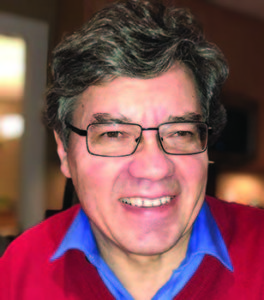 Hausi A Müller
Hausi A Müller
Position Statement
IEEE Computer Society (CS) is an outstanding international organization for computing professionals, students, and researchers providing leadership, foresight, influence, and direction in best practices, education, and leading-edge research. CS is a trusted source for computing technology information around the globe. As a CS volunteer, I aim to inspire future generations of engineers and scientists through leadership and contributions in technical committees. I am deeply committed to advancing equity, diversity, and inclusiveness (EDI) at all levels of IEEE.
To be able to respond to the needs of our rapidly changing society and professions, CS must be agile and adaptive in its operations to champion technically and financially sound services and form promising alliances. To sustain CS’s excellence, CS must focus on its membership, its sustainable financial future, and the quality of its core assets. CS must continue to earn the trust of computing professionals and provide extensive opportunities for professional networking, career development, and life-long learning.
With my extensive experience as a CS volunteer and service on the CS BoG, I can provide valuable guidance to provide strategies and tactics for CS organizational entities and foster effective strategic planning, technical and financial accountability of boards and committees.
Biography
Hausi A. Müller is a Professor of Computer Science and Associate Dean of Research, Faculty of Engineering, at the University of Victoria, British Columbia, Canada. He joined IEEE as a student member in 1979 and has been an active member of the IEEE Computer Society (CS) for over 30 years. He serves as VP of the IEEE CS Technical and Conferences Activities (T&C) Board (2016–2018), was an elected member of the CS Board of Governors (2015–2017), and will serve as Member of the 2019 IEEE Conferences Committee and IEEE Conference Publications Committee. He was chair of CS Technical Council on Software Engineering (TCSE) and served on the IEEE Transactions on Software Engineering editorial board for 12 years.
Müller is chair of the steering committee of the SEAMS conference series (ACM/IEEE International Symposium on Software Engineering for Adaptive and Self-Managing Systems). He was general chair of 23rd ACM/IEEE International Conference of Software Engineering (ICSE 2001) and 30th IEEE International Conference on Software Maintenance and Evolution (ICSME 2014), and recently technical program co-chair of IEEE World Forum on Internet of Things (WF-IoT 2015 & 2018) and 26th Conference of the Center for Advanced Studies on Collaborative Research (CASCON 2016). He is a Fellow of the Canadian Academy of Engineering, a CS Golden Core member, and received the 2016 TCSE Distinguished Service Award. He collaborates extensively with industry as an international expert in software engineering, adaptive systems, Internet of Things, cyber-physical systems, and intelligent systems. He was co-organizer of an event honoring 90 computing pioneers in Canada. Müller received a BS in electrical engineering from ETH Zürich, Switzerland, and an MS and a PhD in computer science from Rice University in Houston, USA. He sings and plays guitar and enjoys hiking and skiing.
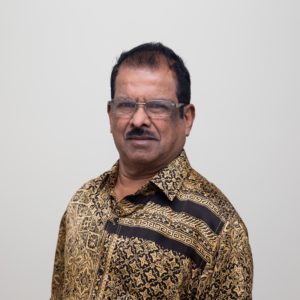 San Murugesan
San Murugesan
Position Statement
The Computer Society (CS) needs to continue to be relevant and valuable to its members and computer professionals at large. It must also successfully address the challenges it faces and meet its members’ expectations. These call for novel approaches to the Society’s offerings and operations. Drawing on my broad vision and capabilities, I shall drive major transformation of the Society embracing opportunities we have now and by closely working with staff, volunteers, and our stakeholders.
In particular, I’ll advocate and champion this transformation by helping the Society implement new initiatives of value to members around the world by judiciously exploiting advances in technology, changing membership profiles, and global trends. I’ll foster new measures to address declining CS members, extend our global reach, boost industry and practitioner participation, and raise our revenue. I’ll also enrich members’ engagement with the Society and among themselves. Furthermore, I’ll work towards improving our publications and digital library and offering you regularly much desired curated information and insights on key topics of interest.
Leveraging on my expertise and over 30 years of varied experience and my close association with the Society, I’ll make significant contributions to the Board and the Society and thereby to the members.
Biography
San Murugesan is Director of BRITE Professional Services and Adjunct Professor at Western Sydney University, Australia. He is editor-in-chief emeritus of CS IT Professional magazine. In a career spanning four decades in academia and industry, he successfully led several academic programs and development of computing and control systems for Indian satellite programs. He also provided leadership in curriculum design and research and offered consultancy services. He was a Senior Research Fellow at the NASA Ames Research Center and served as professor of computer science at Southern Cross University and Western Sydney University. Prior to these, he worked at the Indian Space Agency in Bangalore for 19 years.
Murugesan has been a valued Senior Member of IEEE and CS for 25 years. He has actively been contributing to the Society as editor in chief, editorial board member, department editor and as member of various committees and boards. He was program and general chair of several international conferences and is currently a member of COMPSAC standing committee. He was a Distinguished Visitor of CS and served as Vice-Chairman of CS NSW Section, Australia. In recognition of his “distinguished and valuable service, commitment to excellence, and wide-ranging significant contributions the Computer Society,” he is awarded the Computer Society’s second highest service award, Distinguished Service Certificate.
Murugesan is also well recognized for developing and promoting Web engineering and Green IT as new disciplines. He is co-editor of popular Wiley-CS books Encyclopedia of Cloud Computing (2016) and Harnessing Green IT: Principles and Practices (2012), both of which are translated into Chinese. He has guest edited over 20 special issues of CS publications, and authored over 250 papers. He has a PhD in computer science from Indian Institute of Science. He is a Fellow of the Australian Computer Society and IETE. For further information, see http://bitly.com/sanbio.
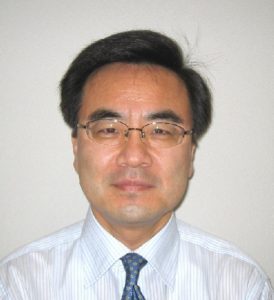 Kunio Uchiyama
Kunio Uchiyama
Position Statement
The global environment is undergoing dramatic changes, and the need to solve global issues, such as global warming, energy, food safety, disaster prevention, and aging populations, is now urgent and crucial. Computer technologies are playing a major role in solving these issues, and the collaboration between computing and other fields leads to further innovation. I have no doubt that the IEEE Computer Society, the world’s leading community for computer professionals, could be at the center of collaboration with other IEEE societies, academia, and industrial communities to facilitate future societal innovation.
I will use the experience gained through my 40 years in industry, in which I have led national and collaborative projects with universities, served as a BoG member for the Society, and volunteered on many committees and conferences for professional societies, to serve the Society by making it more attractive to its members and people both inside and outside IEEE and by promoting the Society as a forum to initiate collaboration with other societies for future innovation. In particular, as a member of the Asia-Pacific region, where computer technologies and applications are greatly developed, I will contribute to promoting the activities of the Society in this area.
Biography
Kunio Uchiyama received BS and MS degrees in information science from the Tokyo Institute of Technology, Japan, in 1976 and 1978, respectively, and a PhD degree in advanced applied electronics from the Institute in 2001. Since 1978, he has been working for the Central Research Laboratory, Hitachi, Ltd., Tokyo, Japan, on design automation, mainframe computers, microprocessors, multi-core processors, and their applications. He is currently a technology advisor at Hitachi, Ltd., after working as a chief scientist and corporate officer at Hitachi.
He led the research and development on the commercial SuperH microprocessors from the beginning of the 1990s and was awarded the National Medal of Honor with Purple Ribbon in 2004 in recognition of his contribution to the development of commercial high-performance low-power microprocessors. He also received the R&D100 Award and Chief Officer’s Award from the Japanese Science and Technology Agency in 1999 and 2000, respectively. He was the leader of a project for the New Energy and Industrial Technology Development Organization, Japan (NEDO) called “Heterogeneous Multi-core Technology for Information Appliances” from 2007 to 2010.
He has been serving as a member and vice chair of the organizing committee of the IEEE Symposium on Low-Power and High-Speed Chips, which has been sponsored by IEEE CS since 2001, and was a general chair of the Asia and South Pacific Design Automation Conference sponsored by IEEE CAS and CEDA from 2014 to 2015. He has been a member of the Board of Governors of IEEE CS since 2016 and of the Industry Promotion Committee of the IEEE Japan Council since 2014. He is a member of the IEEE Computer Society and Solid-State Circuits Society and of IEICE (Institute of Electronics, Information and Communication Engineers). He is a Golden Core Member of IEEE CS and a Fellow of IEEE and IEICE.
Bookmark this page – we’ll be updating this post throughout the next two weeks with links for the post on the candidates running for the other three positions: 2nd Vice President, 1st Vice President, and President. We’ll also be adding a link to vote to each post once the link is available on Monday, 6 August.

Leave a Reply